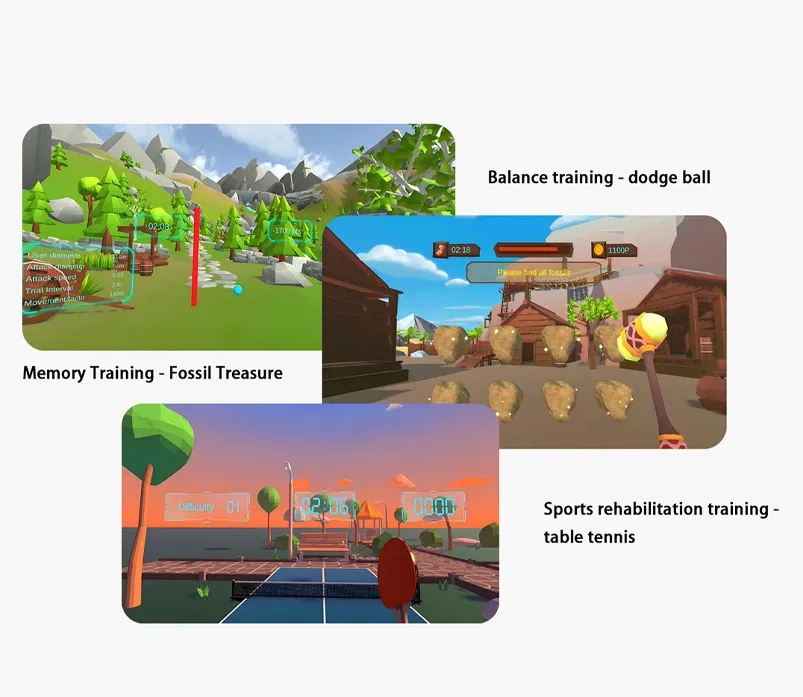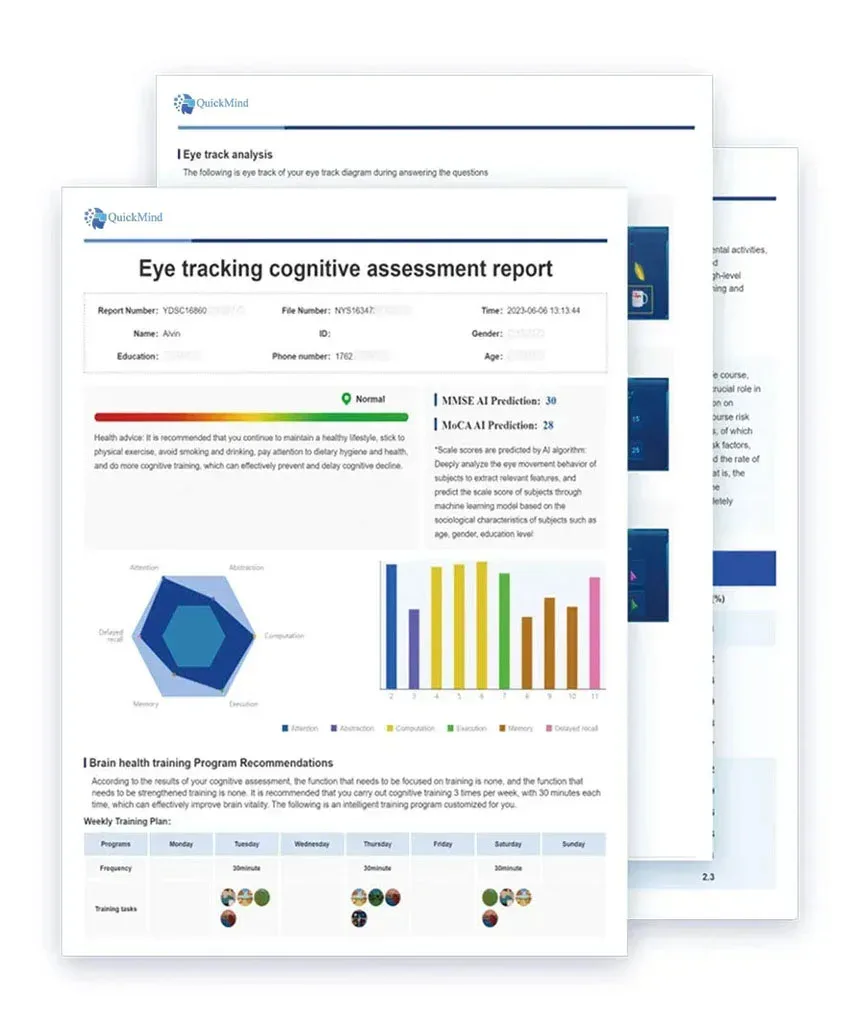
Innovative research implies that virtual simulation treatment can markedly advance the welfare of individuals diagnosed with dementia. By transferring them to serene places, VR supplies a exclusive opportunity for thought encouragement, emotional regulation, and group participation. Diverse examinations have indicated that VR therapy can alleviate turmoil, stress, and melancholy in dementia those diagnosed while also elevating their cognition, focus, and linguistic talents.
- VR provides clients with dementia to reexperience dear memories through immersive simulations.
- What's more, it can offer a comfortable and nurturing space for social engagement, promoting a consciousness of bond and membership.
- Experts assert that VR therapy has the prospect to transform dementia therapy by delivering new and progressive methods to deal with the hard issues faced by patients coping with this affliction.
Virtual Medical Treatments for Brain Improvement in Alzheimer's
Advancing technological solutions are indicating success in the territory of mental capacity building for individuals diagnosed with Alzheimer's ailment. These software harness computing power to boost brain performance and conceivably curtail the evolution of the syndrome. Game-based activities, personalized feedback, and psychological training are some samples of techniques being explored in this flourishing sphere. While studies are being conducted, digital therapeutics enable a potential pathway for strengthening the experiences of those affected by Alzheimer's dementia.Navigating Reality Through Virtual Landscapes: A Novel Approach to Alzheimer's Treatment
Pertaining to individuals combating Alzheimer's condition, the continuous degradation of brain power and thinking skills can markedly impact their aptitude to communicate with the community. This debilitating disorder often results in detachment, distress, and a reduced individuality. Contemporary refinements in virtual reality technology introduce a pioneering means to mitigate these complications by developing immersive worlds that can activate the brain and refresh cognitive function.
Digital immersive sceneries created specifically for persons with Alzheimer's can transport them in comforting environments, such as their first house or a chosen recreational spot, triggering positive memories and lessening anxiety. Through interactive assignments, these virtual environments can also challenge cognitive abilities like recall, focus, and logical processing.
The beneficial impacts of virtual reality in Alzheimer's healing are manifold. Early studies have proved positive results, with persons showing improvements in cognitive power, mood, and overall quality of life. As this platform progresses, it holds the key to changing the way we approach Alzheimer's disease, providing a new pathway for intervention and strengthening.
Immersive Reminiscence Sessions in Alzheimer's
Reminiscence therapy is a widely recognized technique used to strengthen cognitive function and psychosocial health in individuals with Alzheimer's disease. This time-honored form of therapy involves stimulating patients to express past experiences, often through storytelling. However, a groundbreaking approach is emerging: VR-mediated reminiscence therapy.
This immersive platform utilizes virtual reality headsets to bring patients in simulated environments that arouse memories from their past. By going through these constructed realities, individuals with Alzheimer's can interact with their past in a significant way.
Virtual Reality as a Memory and Cognitive Booster in Dementia
Virtual reality (VR) is emerging as a hopeful device in the fight against dementia, presenting cutting-edge ways to enhance memory and cognition. By generating immersive simulations, VR can facilitate individuals with dementia remember memories, join in meaningful activities, and elevate cognitive faculties. Studies have revealed that VR interventions can lead to important improvements in memory recall, attention, and dimensional awareness. Moreover, VR provides a harmless and motivating space for individuals with dementia to interact, reducing feelings of isolation and anxiety.
- Besides, VR can be adapted to individual needs and preferences, enabling heightened levels of involvement.
- Considering the potentials of VR, continued research is needed to fully understand its long-term benefits in dementia care.
Bringing Back Memories, Strengthening Ties: VR Effects on Alzheimer's Social Life
Virtual synthetic settings is emerging as a groundbreaking technology in the branch of Alzheimer syndrome. By developing interactive and responsive realities, VR has the potential to revive memories, strengthen social interaction, and elevate the overall quality of life for clients suffering from Alzheimer's. Cognitive function assessment Arguably the most notable aspects of VR is its ability to convey users to vintage venues and experiences from their past. Whether it's a walk through a childhood home or a simulation of a beloved holiday, these virtual experiences can evoke happy memories and solidify cognitive capacity. Furthermore, VR can aid social interaction by uniting individuals with others who share similar hobbies. This can be particularly valuable for people with Alzheimer's who may face difficulties with traditional social communication. By maintaining a safe and interactive virtual space, VR can alleviate feelings of isolation and loneliness, which are common among individuals suffering from Alzheimer's. Overall, VR holds immense prospect for remodeling the lives of patients with Alzheimer's by awakening memories, rebuilding connections, and advancing their quality of life. As technology persists in evolve, we can expect even more innovative applications of VR in the field of dementia care.Applying Cognitive Training: Employing VR Tools for Alzheimer's Care
Simulated immersive settings is rapidly emerging as a cutting-edge tool in the realm of cognitive training, particularly for clients struggling with Alzheimer's disease. By immersing patients in interactive and engaging virtual environments, VR-based interventions can advance cognitive functions such as memory, attention, and problem-solving. These games usually incorporate elements of storytelling, exploration, and social interaction, making the training process highly engaging. Studies have shown that VR-based cognitive training can lead to important improvements in cognitive performance, likely delaying the progression of Alzheimer's symptoms. Moreover, VR provides a safe and controlled environment for patients to practice new skills and reinforce their confidence.
- Game-style methods in VR training can make it more interactive and appealing for participants with neurological deficits.
- VR simulations can offer realistic scenarios that provoke and motivate cognitive functions.
- Personalized VR experiences can cater to individual needs and learning styles.
Virtual Reality: New Horizons in Dementia Assistance
Immersive simulated worlds offer a original and advantageous avenue for individuals living with dementia. These technologies can recreate familiar environments, allowing those affected by cognitive decline to relive cherished memories and foster a sense of comfort. By alleviating the difficulties of dementia, VR worlds have the power to improve quality of life for both persons and their supporters.
- Investigations indicate that VR strategies can noticeably impact cognitive function, affective well-being, and even movement abilities in individuals with dementia.
- Moreover, VR offers a safe and structured environment for engagement, reducing the risk of injury.
- Likewise, VR can boost social communications by allowing individuals with dementia to participate in virtual activities with others.
Leveraging VR for Timely Alzheimer's Diagnosis and Care
Alzheimer's condition constitutes a complicated puzzle, often staying hidden in its early stages. Though, virtual reality (VR) is showing promise as a trailblazing tool for precocious diagnosis. Through immersive digital replications, VR can evaluate cognitive capacity in ways that traditional methods are insufficient to. This capability allows for immediate action strategies, potentially impeding disease progression and optimizing the quality of life for people with Alzheimer's.
- Virtual reality technology offers secure and structured assessments of memory and attention.
- Personalized VR experiences can help patients participate in activities that stimulate cognitive function.
- Immersive VR scenes foster connection and communication for Alzheimer's individuals.
Enhancing Dementia Communication and Social Interaction Via VR
{In the realm of dementia care, innovative technologies are emerging to upgrade the lives of individuals living with this challenging condition. Virtual reality (VR) is one such technology that holds immense potential for narrowing social gaps and boosting communication with dementia clients through VR. By developing compelling digital realities, VR can stimulate cognitive function, reduce behavioral issues, and ultimately improve the overall well-being of individuals with dementia.
VR experiences personalized for cognitive decline support can range from memory therapy sessions that transport participants to cherished memories, to interactive games that promote social interaction and cognitive training. Furthermore, VR has the competence to connect users experiencing dementia with caregivers, regardless of physical distance, fostering a sense of acceptance.
- VR can help in reducing agitation and anxiety by providing a calming and captivating environment.
- Research have shown that VR interventions can lead to improvements in cognitive function, mood, and social interaction in persons living with cognitive impairment.
- As technology develops in advance, we can expect even more innovative and {effective|beneficial|helpful|powerful|impactful|successful|productive|efficient
